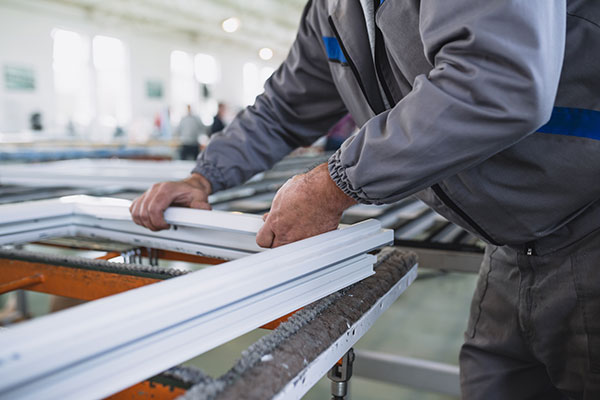Nick Hayler, Technical and Product QA Manager from Marshall-Tufflex explains to apprentices the benefits of high-quality recycled PVC-U trunking and why the company remains committed to certification.
Time to cut waste
As mentioned in our last article, the UK currently produces too much waste as a result of construction activity. Within this waste, only a small portion is recyclable, meaning the rest ends up in landfill sites. It’s an unsustainable model, which will need to change.
Moving forward, it will be necessary for those entering the industry, such as apprentices to adopt more environmentally friendly practices. At Marshall-Tufflex, we believe that the best solution is to start specifying more recycled material within the build process. To do our part, we now manufacture our PVC-U trunking from 80% recycled material, with some extruded white trunking profiles manufactured from 100% recycled content.
In its unrecycled form, PVC is an oil-rich material, which takes a lot of energy to produce. What’s more, the material isn’t bio-degradable, which means it doesn’t naturally decompose. As a result, PVC building units continue to take up space long after they have served their purpose. We believe that time is up for single use plastics and are instead putting plastics recycling at the forefront of our specification and purchasing decisions. By investing in advanced technology, we have been able to push up levels of recycled content in all of our manufactured PVC-U products.
A simple process
Apprentices should know that recycling PVC-U is a straightforward process, which doesn’t affect the strength or durability of the material. In fact, PVC-U can be recycled ten times or more without the process impacting the material’s structural integrity. On grounds of its immense reusability, recycled PVC-U was the first material of any type to be independently awarded an A+ material sustainability rating by the Building Research Establishment.
It’s important for apprentices to understand that high-quality recycled material has the same performance qualities as unrecycled material. For a company like Marshall-Tufflex, who has built its reputation off a commitment to certification, this is crucial. The company’s products are tested by the relevant regulatory bodies to ensure that they still work even in the most extreme circumstances. What’s more, the company pays keen attention to updates and amendments to the British Standards and the Wiring Regulations.
Remaining consistent
Ensuring consistent quality when using recycled material can be difficult but becomes more manageable with a proper quality control process in place. At Marshall-Tufflex, we take great pride in our environmental standards and the processes in place to protect them.
Our efforts to remain compliant with the EU regulation for Registration, Evaluation, Authorisation and Restriction of Chemicals (REACH) are similarly as stringent. The pioneering standard addresses the production and use of chemical substances and assesses their potential impact on both human health and the environment. Under Article 33 of the standard, we have agreed a duty to communicate information on substances in articles greater than 0.1% by weight, should these substances be present in our products.
PVC-U has a number of benefits as a recycled material. The recycling process is simple and renders a material as structurally sound as it is in its virgin state. With the construction sector facing an urgent need to reduce levels of waste, the industry must work to ensure the material is more routinely specified. Soon this task will be passed onto a new generation of tradespeople who will need to drive change. Fortunately for apprentices, there are suppliers like Marshall-Tufflex, who ensure its recycled materials are fully certified and up-to the necessary regulations and requirements.
To find out more about Marshall-Tufflex’s extensive range of solutions, including its recycled PVC-U products, please visit www.marshall-tufflex.com.



